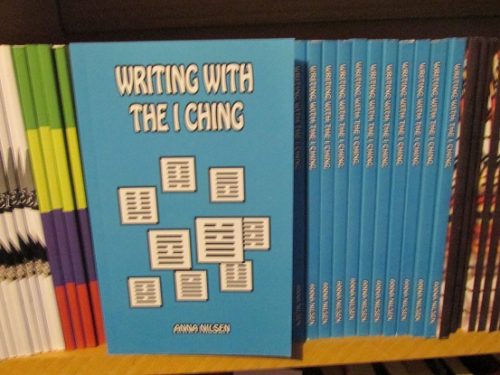
In the world of the cyberpunk novel The Verity Key, politics has sunk to such a degenerate level that no-one has any confidence in politicians, no matter who they are or what they promise. In response to this, there is no longer any room for shame in politics. The left and the right have collapsed into the Establishment Party, which doesn’t even pretend to stand for anything other than the naked self-interest of the powerful.
Francis Fukuyama wrote about a ‘Great Pendulum’ that swung back and forth throughout history every half century or so and whose oscillations heralded new ages and epochs. A Taoist might understand this as the dynamic between masculine and feminine, in which the excesses of one kind of energy lead naturally to the rise of the other.
The Great Pendulum may have swung the furthest to the right in the 1940s and 1950s, which were characterised by nationalist wars and widespread acceptance of eugenics and the physical elimination of those considered unworthy of life. The revolution against this way of thinking occurred in 1968, and was marked by student protests, LSD and Woodstock, culminating in the ‘Summer of Love’.
If the pendulum has swung left since then, and if this swinging left has been characterised by gay marriage, liberal immigration laws for people from impoverished countries, and the obesity epidemic, then perhaps it has been half a century since 1968 and the pendulum is about to swing back. The mass sexual assaults and terrorism so far in Europe this year might see 2016 remembered as the ‘Summer of Hate’.
If it does, we may see a revaluation of values that indicates the pendulum will swing to the masculine side once again, as it last did in the Victorian Age that marked the height of the British Empire, one of the most audacious attempts to impose order upon chaos ever devised.
Donald Trump may be a harbinger of this revolution. Then again, the real opposition for Trump may come from within his own party, in the form of the Establishment favourite Ted Cruz. Certainly Donald Trump destroyed his opponents in the Republican primaries by appearing as more of an alpha male, which might suggest a shift away from the consensus politics of the last 50 or so years.
Bernie Sanders might not represent a swing to the right, but his rise in influence could nonetheless reflect a switch to a more rational way of trying to improve the lives of the citizenry, as opposed to the trend-based, emotion-driven, suffocating maternalism represented by Hillary Clinton.
Seen in this way, Clinton and Cruz have more in common with each other than either does with their opponent in their party primary. This might turn out to be the embryo of what will one day become the Establishment Party.
In Europe, a different process might lead to a similar result. Already in some European countries, France and Sweden the foremost, there is an open conspiracy to deny all media time to the growing far-right parties. This conspiracy might turn out to be the last stand of the regressive left as the momentum of the great pendulum proves unstoppable.
If the far-right parties continue to grow, all other parties might come together in some countries to resist them. These new parties will be grand coalitions of conservatives, social democrats and perhaps even Greens, and will be Establishment Parties in all but name.




